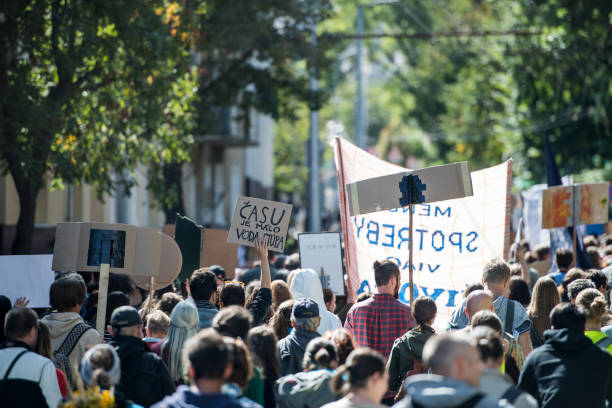
Investing isn’t just about crunching numbers—it’s about seeing the bigger picture. Think about the last global event that shook markets.
The world is interconnected, and changes around you can create new opportunities or pose risks. By recognizing patterns and anticipating what’s next, you can make investment decisions that align with your financial goals. Let’s dive into how global events influence your investment choices.
How Global Events Impact Financial Markets
Global events significantly influence financial markets, often creating uncertainty or presenting opportunities for investors. Political upheavals, such as elections or policy changes, can shift market sentiment, causing price volatility.For instance, the 2024 French parliamentary elections led to a sharp decline in the French stock market, marking its worst week in over two years.Likewise, the changes in the economy in terms of interest rates, inflation, or GDP growth directly affect both the industries and the investments. For instance, the outbreak of COVID-19 led to a huge slump in the global stock markets, especially hitting the Dow Jones industrial average with its biggest drop since the 2007–2008 financial crisis.Each of these events is interconnected, as political decisions influence economic conditions, while crises often trigger government interventions.Therefore as an investor, it becomes very crucial for you to adapt these strategies in order to navigate risks and capitalize on emerging opportunities effectively.
Key Historical Events and Their Market Impact
Every market has its story, and history often repeats itself in fascinating ways. Let’s get into some game-changing events that shook the financial world and reshaped economies.
Event | Description | Market Impact |
2008 Global Financial Crisis | A global recession was caused by the bursting of the United States housing bubble which eventually resulted in large-scale defaults on subprime mortgages. | Between October 2007 to March 2009, stock markets worldwide suffered a heavy blow. The most affected was the Dow Jones Industrial Average which fell by 1,191 points. The crisis resulted in widespread unemployment and significant losses in household wealth. |
1991 Indian Economic Liberalization | A number of policies and measures were undertaken in India to liberalize the economy, reducing tariffs, and encouraging foreign investment to address a severe balance of payments crisis. | The reforms led to increased foreign direct investment, higher economic growth rates, and integration into the global economy. India's GDP growth rate increased from 1.1% in 1991–1992 to 4% in 1992–1993. |
2001 Dot-com Bubble Burst | A period of excessive speculation in internet-based companies, leading to inflated stock prices that eventually collapsed. | The NASDAQ Composite Index, heavily laden with tech stocks, fell nearly 77% from its peak, erasing billions in market value and leading to numerous company bankruptcies. |
2016 Demonetization in India | The Indian government's sudden invalidation of ₹500 and ₹1,000 currency notes to combat black money and counterfeit currency. | The move caused a cash crunch, leading to a slowdown in economic activities, particularly in the informal sector. India's GDP growth fell to 6.1% in the quarter ending December 2016, down from 7.6% in the previous quarter. |
2020 COVID-19 Pandemic | A global health crisis caused by the novel coronavirus, leading to widespread lockdowns and economic disruptions. | Global stock markets experienced extreme volatility, with major indices like the S&P 500 experiencing significant declines. The pandemic led to a global GDP contraction of 3.4% in 2020. |
Investment Strategies for Difficult Times
Managing tough economic times calls for smart investment strategies to protect and grow your portfolio. Some key approaches include:
1. Diversification
Diversification means spreading your investments across different asset types like stocks, bonds, real estate, and even various regions or industries.This strategy helps reduce risk because when one investment performs poorly, others might do well, balancing the overall impact on your portfolio. For instance, when stocks decline, stable bond performance can help offset losses, maintaining balance in your portfolio.Diversification ensures your money isn’t overly dependent on the success or failure of a single asset, helping you stay more secure during market ups and downs.
2. Long-Term Perspective
Focusing on the long term helps you stay calm during short-term market ups and downs. While market volatility can be unsettling, it’s important to remember that markets often recover and grow over time.Historical data shows that sticking to a long-term plan usually leads to better outcomes, even if there are temporary setbacks. For example, Over the past 10 years, the Nifty 50 index in India has delivered an annualized return of approximately 12.64%, highlighting the benefits of long-term investment strategies. Instead of reacting to daily fluctuations, you need to keep your goals in mind and allow your investments the time they need to grow.
3. Regular Portfolio Review
Reviewing your portfolio often is crucial to ensure it aligns with your financial goals and risk tolerance. For example, imagine you initially invested in technology stocks, but global conditions now favour healthcare and utilities.Adjusting your investments to include these sectors can reduce risk and improve potential returns. Regular updates help you adapt to market changes, like interest rate hikes or geopolitical events, and ensure your portfolio isn’t overexposed to underperforming assets.
4. Consider Defensive Stocks
During economic downturns, investing in defensive stocks—stocks of companies providing essential goods and services like food, healthcare, and utilities—can offer portfolio stability.These sectors typically experience consistent demand regardless of economic conditions, leading to more stable earnings and dividends. For instance, Britannia Industries, a well-known company in the food and beverage industry, saw steady demand for its essential products.Even during tough economic times, Britannia's stock stayed stable, showing how strong the sector remained during the crisis. In the first quarter of the financial year 2020-21 (April-June 2020), the company reported a 26% increase in total revenue, reaching ₹3,384 crore compared to the same period in the previous year.Having said that, allocating a portion of your portfolio to these defensive sectors can help mitigate risks associated with economic slowdowns.
Conclusion
Global events affect the investment world, bringing both risks and opportunities. Keeping yourself updated helps you understand market changes and make better decisions. Adapting to changes can also help you stay strong during uncertain times.


